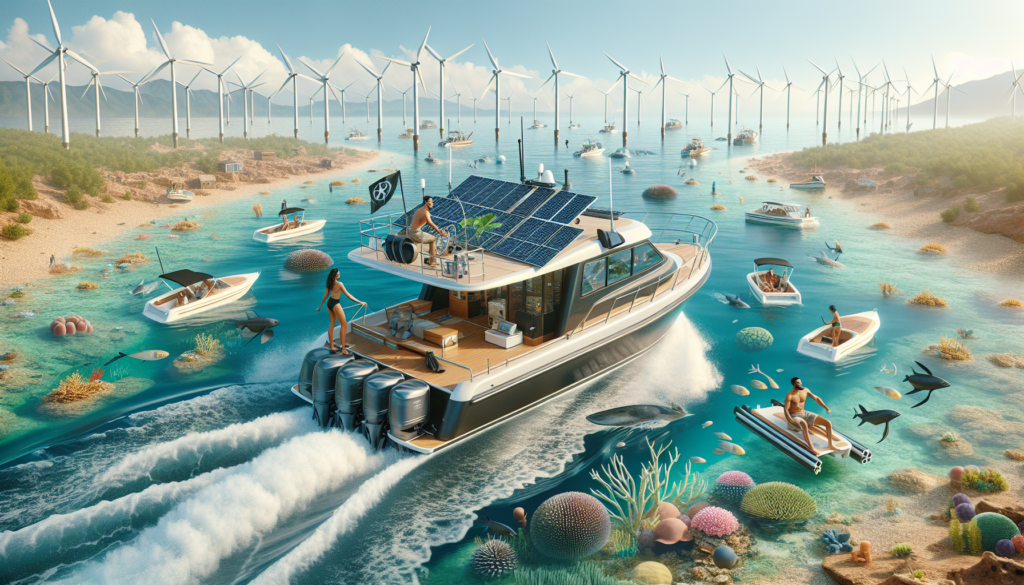Eco-Friendly Boating Practices: Navigating towards a Sustainable Future
Boating is a popular recreational activity enjoyed by millions around the world. Whether it’s cruising on a yacht, fishing in a small boat, or kayaking along a serene river, being out on the water offers a sense of tranquility and freedom. However, as our understanding of environmental issues grows, it has become increasingly important to consider the impact of boating on our planet. In this article, we will delve into the world of eco-friendly boating practices, exploring ways in which boaters can minimize their environmental footprint and contribute to the preservation of our waterways and marine ecosystems.
The Importance of Eco-Friendly Boating
Boating, like many other recreational activities, can have a significant impact on the environment if not conducted responsibly. From fuel emissions to waste disposal, the various aspects of boating can contribute to water pollution, habitat destruction, and ecosystem degradation. By adopting eco-friendly boating practices, boaters can help protect the health of our waterways and ensure that future generations can continue to enjoy these natural resources.
Reducing Fuel Consumption
One of the key ways in which boaters can minimize their environmental impact is by reducing fuel consumption. Burning fossil fuels not only contributes to air pollution but also releases harmful greenhouse gases into the atmosphere, exacerbating climate change. Boaters can reduce their fuel consumption by maintaining their engines properly, avoiding excessive idling, and practicing fuel-efficient cruising techniques. Additionally, investing in alternative energy sources such as solar or electric propulsion systems can further reduce a boat’s carbon footprint.
Proper Waste Management
Proper waste management is another crucial aspect of eco-friendly boating. Improper disposal of trash, sewage, and wastewater can contaminate water bodies, harm aquatic life, and degrade water quality. Boaters should always follow the principle of “pack it in, pack it out,” meaning that any waste generated on board should be brought back to shore for proper disposal. Installing a marine sanitation device and using pump-out stations for sewage disposal are essential practices for minimizing pollution in waterways.
Choosing Sustainable Materials
When outfitting a boat or making repairs, boaters should opt for sustainable materials whenever possible. This includes using non-toxic paints and coatings, eco-friendly cleaning products, and recycled or biodegradable materials. By choosing sustainable materials, boaters can reduce their environmental impact and support the development of more environmentally friendly boating products.
Protecting Marine Life
Boaters play a crucial role in protecting marine life and habitats. By observing speed limits in sensitive areas, avoiding anchoring on coral reefs, and refraining from feeding wildlife, boaters can minimize their impact on fragile ecosystems. Additionally, participating in conservation efforts such as beach clean-ups, marine mammal monitoring, and habitat restoration projects can help boaters give back to the marine environment they enjoy.
Green Boating Certifications
For boaters looking to deepen their commitment to eco-friendly practices, there are various green boating certifications available. These certifications acknowledge boaters who have taken steps to reduce their environmental impact, such as installing energy-efficient equipment, using non-toxic antifouling paint, and participating in environmental education programs. By obtaining a green boating certification, boaters can demonstrate their dedication to sustainability and inspire others to follow suit.
Expert Opinions
According to marine biologist Dr. Samantha Green, “Eco-friendly boating practices are crucial for the health of our oceans and waterways. As boaters, we have a responsibility to minimize our impact on the environment and protect the marine ecosystems that sustains us.” Dr. Green emphasizes the importance of raising awareness about the importance of eco-friendly boating and encourages boaters to be stewards of the sea.
Common Misconceptions
One common misconception about eco-friendly boating is that it requires sacrificing comfort or performance. In reality, many eco-friendly boating practices can improve a boat’s efficiency, reduce maintenance costs, and enhance the overall boating experience. By making small changes to their boating habits, boaters can make a big difference in protecting the environment without compromising on enjoyment.
Conclusion
To wrap things up, eco-friendly boating practices are essential for preserving the health of our waterways and marine ecosystems. By reducing fuel consumption, practicing proper waste management, choosing sustainable materials, protecting marine life, and obtaining green boating certifications, boaters can make a positive impact on the environment. Through collective action and individual responsibility, we can ensure that boating remains a sustainable and enjoyable pastime for generations to come.



